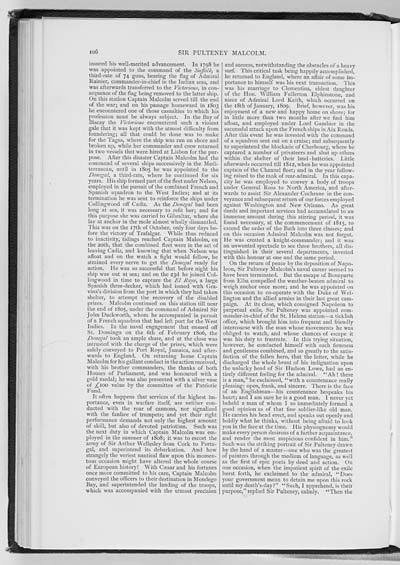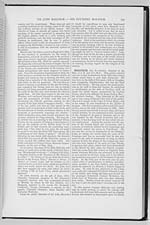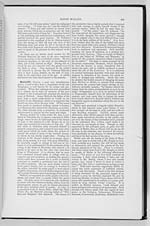106
insured his well-merited advancement. In 1798 he
was appointed to the command of the Suffolk, a
third-rate of 74 guns, bearing the flag of Admiral
Rainier, commander-in-chief in the Indian seas, and
was afterwards transferred to the Victorious, in con-
sequence of the flag being removed to the latter ship.
On this station Captain Malcolm served till the end
of the war; and on his passage homeward in 1803
he encountered one of those casualties to which his
profession must be always subject. In the Bay of
Biscay the Victorious encountered such a violent
gale that it was kept with the utmost difficulty from
foundering; all that could be done was to make
for the Tagus, where the ship was run on shore and
broken up, while her commander and crew returned
in two vessels that were hired at Lisbon for the pur-
pose. After this disaster Captain Malcolm had the
command of several ships successively in the Medi-
terranean, until in 1805 he was appointed to the
Donegal, a third-rate, where he continued for six
years. His ship formed part of the fleet under Nelson,
employed in the pursuit of the combined French and
Spanish squadron to the West Indies; and at its
termination he was sent to reinforce the ships under
Collingwood off Cadiz. As the Donegal had been
long at sea, it was necessary to refit her; and for
this purpose she was carried to Gibraltar, where she
lay at anchor in the mole almost wholly dismantled.
This was on the 17th of October, only four days be-
fore the victory of Trafalgar. While thus reduced
to inactivity, tidings reached Captain Malcolm, on
the 2Oth, that the combined fleet were in the act of
leaving Cadiz, and knowing that when Nelson was
afloat and on the watch a fight would follow, he
strained every nerve to get the Donegal ready for
action. He was so successful that before night his
ship was out at sea; and on the 23d he joined Col-
lingwood in time to capture the El Rayo, a large
Spanish three-decker, which had issued with Gra-
vina's division from the port in which they had taken
shelter, to attempt the recovery of the disabled
prizes. Malcolm continued on this station till near
the end of 1805, under the command of Admiral Sir
John Duckworth, whom he accompanied in pursuit
of a French squadron that had left port for the West
Indies. In the naval engagement that ensued off
St. Domingo on the 6th of February 1806, the
Donegal took an ample share, and at the close was
intrusted with the charge of the prizes, which were
safely conveyed to Port Royal, Jamaica, and after-
wards to England. On returning home Captain
Malcolm for his gallant conduct in the action received,
with his brother commanders, the thanks of both
Houses of Parliament, and was honoured with a
gold medal; he was also presented with a silver vase
of �100 value by the committee of the Patriotic
Fund.
It often happens that services of the highest im-
portance, even in warfare itself, are neither con-
ducted with the roar of cannons, nor signalized
with the fanfare of trumpets; and yet their right
performance demands not only the highest amount
of skill, but also of devoted patriotism. Such was
the next duty in which Captain Malcolm was em-
ployed in the summer of 1808; it was to escort the
army of Sir Arthur Wellesley from Cork to Portu-
gal, and superintend its debarkation. And how
strangely the veriest nautical flaw upon this momen-
tous occasion might have altered the whole course
of European history! With Caesar and his fortunes
once more committed to his care, Captain Malcolm
conveyed the officers to their destination in Mondego
Bay, and superintended the landing of the troops,
which was accompanied with the utmost precision
and success, notwithstanding the obstacles of a heavy
surf. This critical task being happily accomplished,
he returned to England, where an affair of some im-
portance to himself was his next transaction. This
was his marriage to Clementina, eldest daughter
of the Hon. William Fullerton Elphinstone, and
niece of Admiral Lord Keith, which occurred on
the 18th of January, 1809. Brief, however, was his
enjoyment of a new and happy home on shore; for
in little more than two months after we find him
afloat, and employed under Lord Gambier in the
successful attack upon the French ships in Aix Roads.
After this event he was invested with the command
of a squadron sent out on a cruise; and subsequently
to superintend the blockade of Cherbourg, where he
captured a number of privateers and shut up others
within the shelter of their land-batteries. Little
afterwards occurred till 1812, when he was appointed
captain of the Channel fleet; and in the year follow-
ing raised to the rank of rear-admiral. In this capa-
city he was employed to convey a body of troops
under General Ross to North America, and after-
wards to assist Sir Alexander Cochrane in the con-
veyance and subsequent return of our forces employed
against Washington and New Orleans. As great
deeds and important services had accumulated to an
immense amount during this stirring period, it was
found necessary, at the commencement of 1815, to
extend the order of the Bath into three classes; and
on this occasion Admiral Malcolm was not forgot.
He was created a knight-commander; and it was
an unwonted spectacle to see three brothers, all dis-
tinguished in their several departments, invested
with this honour at one and the same period.
On the return of peace by the deposition of Napo-
leon, Sir Pulteney Malcolm's naval career seemed to
have been terminated. But the escape of Bonaparte
from Elba compelled the weather-beaten admiral to
weigh anchor once more; and he was appointed on
this occasion to co-operate with the Duke of Wel-
lington and the allied armies in their last great cam-
paign. At its close, which consigned Napoleon to
perpetual exile, Sir Pulteney was appointed com-
mander-in-chief of the St. Helena station�a ticklish
office, which brought him into frequent and friendly
intercourse with the man whose movements he was
obliged to watch, and whose chances of escape it
was his duty to frustrate. In this trying situation,
however, he conducted himself with such firmness
and gentleness combined, and so greatly to the satis-
faction of the fallen hero, that the latter, while he
discharged the whole brunt of his indignation upon
the unlucky head of Sir Hudson Lowe, had an en-
tirely different feeling for the admiral. "Ah! there
is a man,"he exclaimed, "with a countenance really
pleasing: open, frank, and sincere. There is the face
of an Englishman�his countenance bespeaks his
heart; and I am sure he is a good man. I never yet
beheld a man of whom I so immediately formed a
good opinion as of that fine soldier-like old man.
He carries his head erect, and speaks out openly and
boldly what he thinks, without being afraid to look
you in the face at the time. His physiognomy would
make every person desirous of a further acquaintance,
and render the most suspicious confident in him."
Such was the striking portrait of Sir Pulteney drawn
by the hand of a master�one who was the greatest
of painters through the medium of language, as well
as the first of epic poets by deed and action. On
one occasion, when the impatient spirit of the exile
burst forth, he exclaimed to the admiral, "Does
your government mean to detain me upon this rock
until my death's-day?" "Such, I apprehend, is their
purpose," replied Sir Pulteney, calmly. "Then the

![]() Universal Viewer |
Universal Viewer | ![]() Mirador |
Large image | Transcription
Mirador |
Large image | Transcription
![]()

